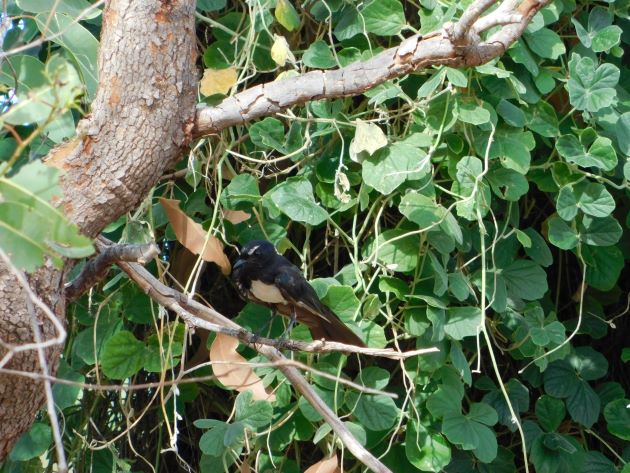
The Willie Wagtail–Rhipidura leucophrys is one of Australia’s most widespread bird species, but it is not observed all year round close to our home in Broome. Willie Wagtails are present across much of the mainland and they are a large fantail. They are distinct with their black and white plumage and they are extremely vocal. They are often heard chattering away before they are seen and they flit around chasing insects, which can make photography interesting.
Recently a pair of Willie Wagtails arrived close to home and we observed them feeding together over several days. We had not observed any Willie Wagtails so close to home for many months and often we only encounter them in town during our cooler months. Each year is different and some years we encounter a lot more than others at the local ephemeral lakes.
As I expected, when I tried to photograph the pair of Willie Wagtails they decided to carry on flitting from tree to stump to the ground chasing insects. It made perfect sense for them to be feeding if they have travelled to the area in search of food after recent rains.
When the Willie Wagtails were in the trees ( as above) it was their chattering sound that gave them away, but as soon as they flitted around on the ground they were clearly visible.
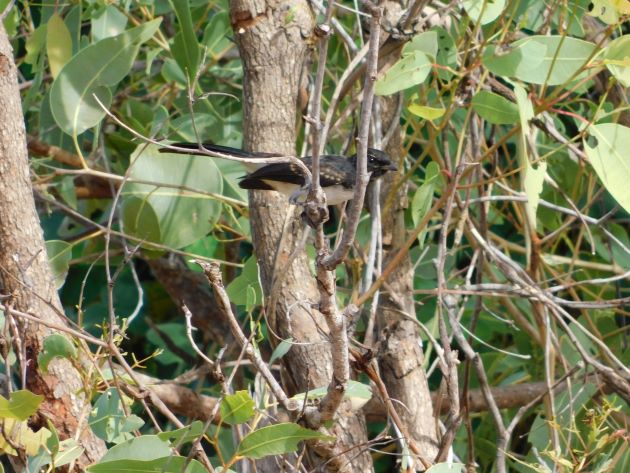
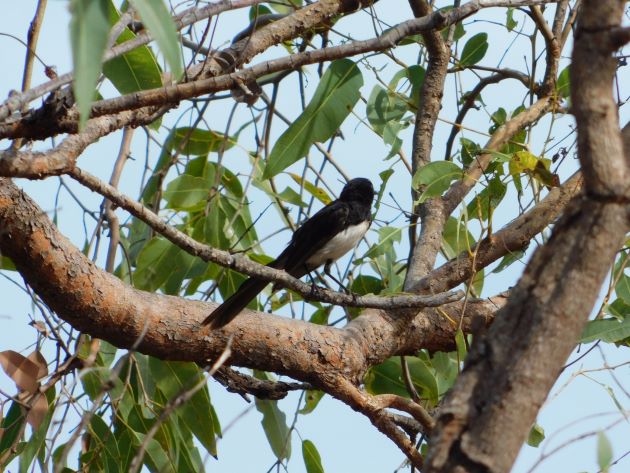
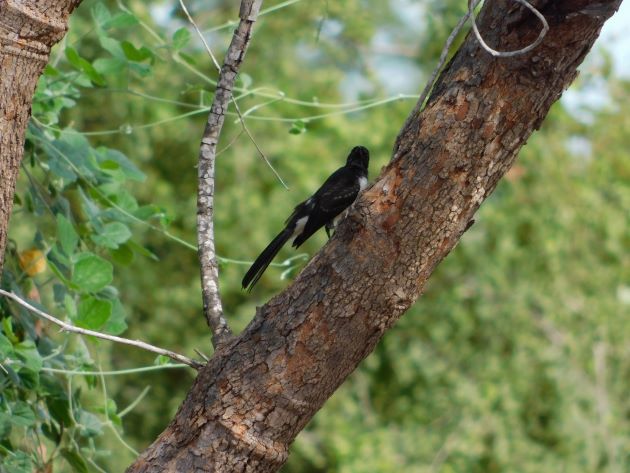
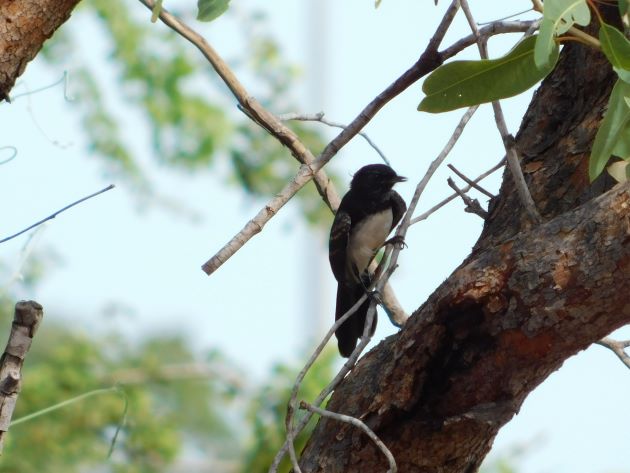
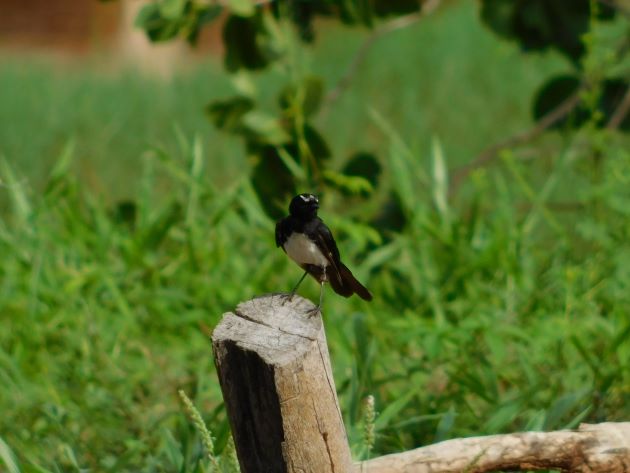
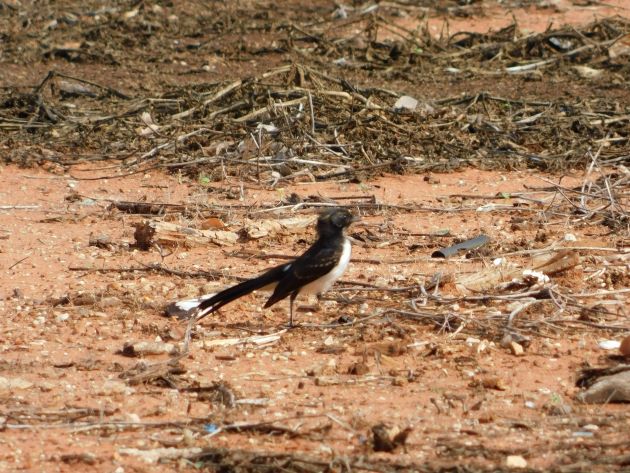
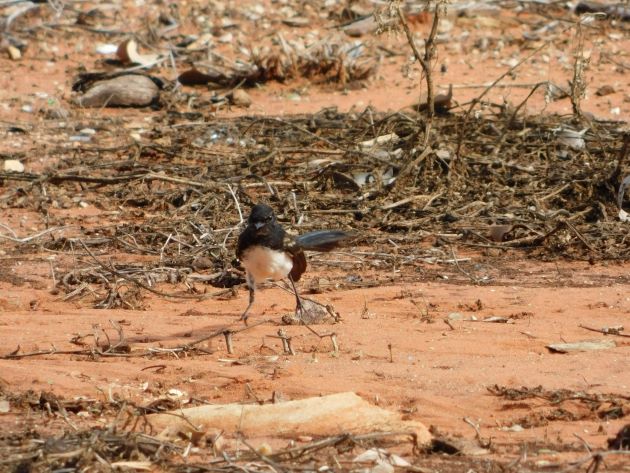
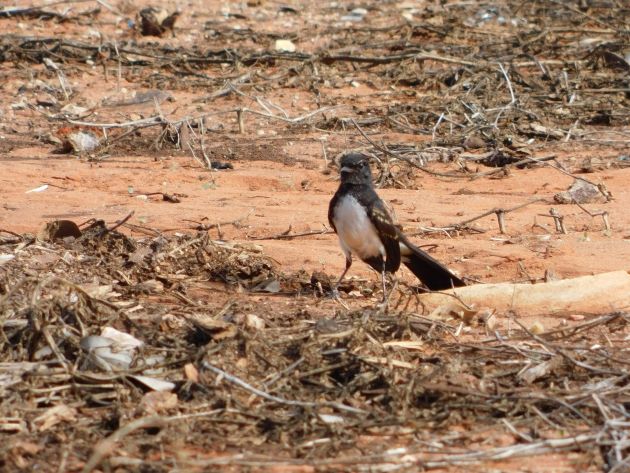
Willie Wagtails
The facial markings and white brow on the Willie Wagtails can give them quite a grumpy appearance! The only other similar size and shape black and white bird species around our home during the year is the Paperbark Flycatcher. Apart from the fact that the Paperbark Flycatcher has no black bib or white eye brow it is extremely vocal in another way. The sound that the Paperbark Flycatcher makes it more like a scissor grinding sound.
As our seasons change here in Broome so will the bird species that we encounter. A total of over 330 bird species have been observed around Broome, so there is always something to enjoy even if it is passing through. The shorebirds are starting on their Northward migration to go and breed and the Dollarbirds that have bred here over our wet season are also now departing to the North.






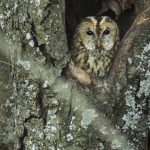
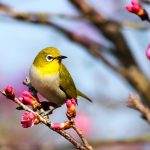


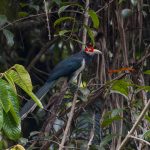
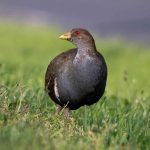
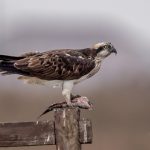
Leave a Comment